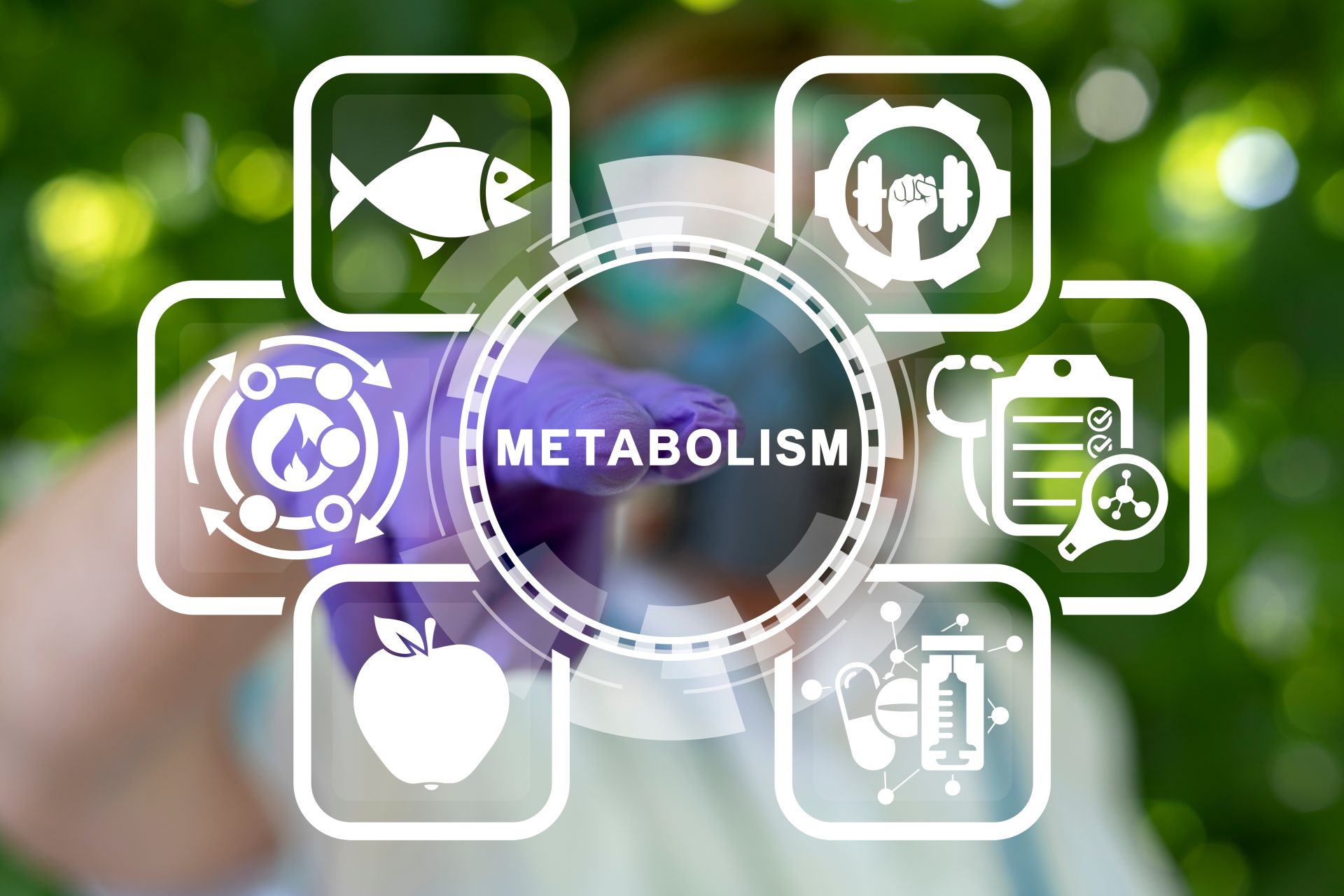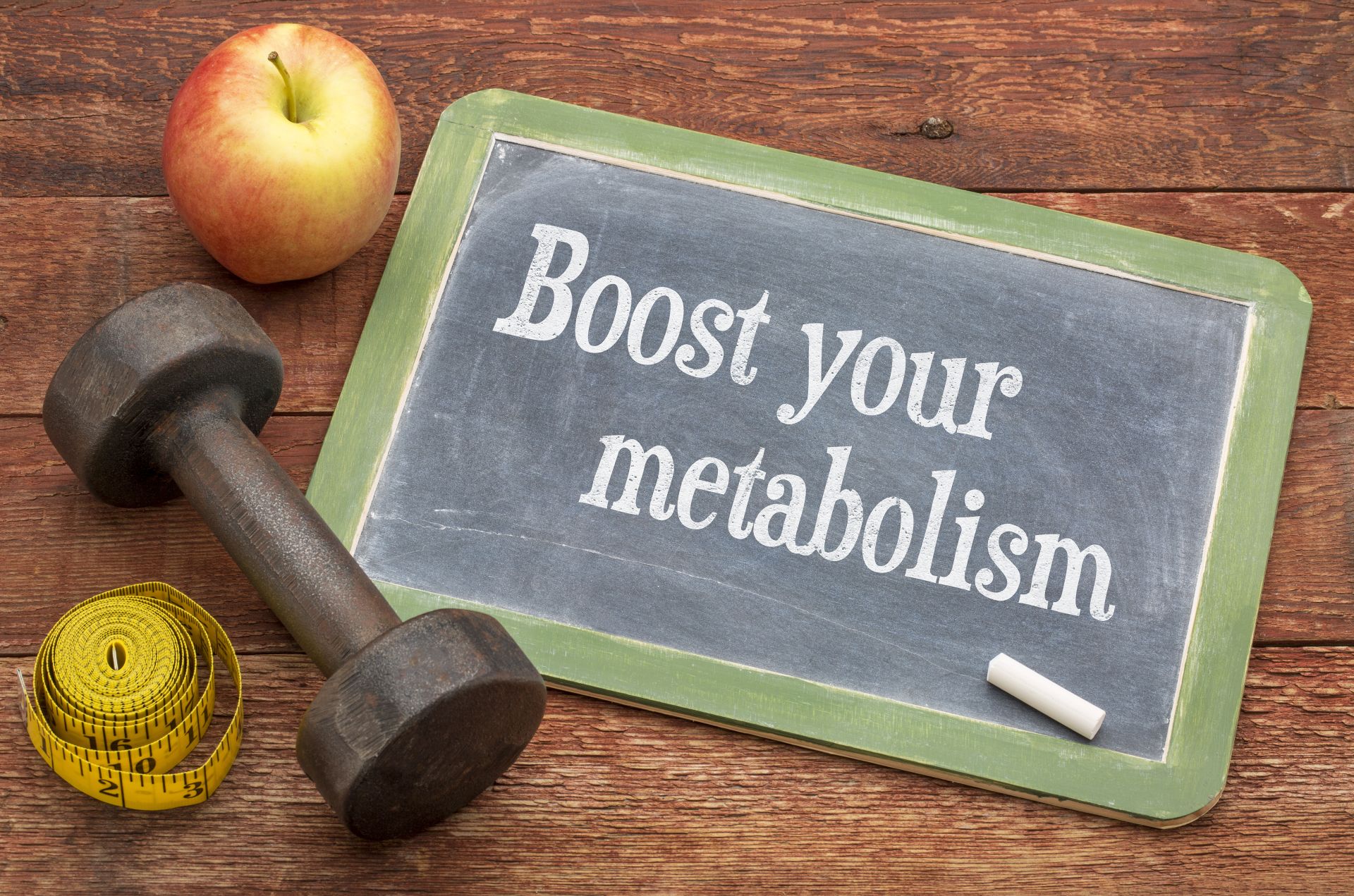The whole truth about metabolism

Everyone has heard of metabolism, but not everyone has a good understanding of what metabolism is all about. There are many circulating myths related to the effects of metabolism on health, and even more so in terms of weight reduction. So let's find out what metabolism is and how it affects human health.
- What is metabolism?
- What goes into metabolism?
- Is there a slow and fast metabolism?
- Does metabolism slow down after the age of 30?
- Exercises to speed up metabolism
- Diet to speed up metabolism
What is metabolism?
Metabolism, which is otherwise known as metabolism, is the totality of biochemical reactions taking place in the cells of the human body. In the simplest terms, metabolism is the internal process by which the body uses energy and burns calories. Metabolism operates 24 hours a day, 7 days a week, to maintain the basic processes of life, even during rest and sleep. Among other things, metabolic processes involve converting the nutrients found in the food we eat into the energy the body needs to breathe, circulate blood, maintain a constant body temperature, function internal organs and grow and repair cells. This means that metabolism is concerned with providing the energy necessary to maintain the basic physiological functions of the human body. Metabolism can be divided into anabolism, which is the synthesis of complex compounds from simple substances, and catabolism, which is the breakdown of large-molecule organic compounds into smaller ones.
What goes into metabolism?
Metabolism, is also sometimes called total metabolism (CPM) or 24-hour energy expenditure. There are four components of metabolism, namely:
-
Basal metabolic rate (PPM), which accounts for as much as 70% of total daily energy expenditure. It is the largest component of resting metabolism, which depends primarily on a person's gender, age, height and weight, and physiological state. PPM determines the lowest energy consumption for processes necessary to sustain basic vital functions under optimal living conditions. Individual differences in PPM values are usually around 250 kcal per day and mainly depend on lean and fat body mass.
-
Non-exercise-induced thermogenesis (NEAT) accounts for 15% of total daily energy expenditure, which includes short periods of physical activity during the day unrelated to scheduled exercise. NEAT thus takes into account the body's energy expenditure during all spontaneous physical activities performed during the day, including speaking, writing, gesturing, walking, stretching, standing, climbing and descending stairs, shopping and cleaning.
-
The thermal effect of food accounting for 10% of total daily energy consumption. It consists of a slight increase in metabolic rate after each meal consumed, which is related to absorption, processing, storage or utilization of nutrients.
-
Thermogenesis resulting from physical activity undertaken, accounting for 5% of total daily energy consumption. It is defined as an increase in energy expenditure following the undertaking of planned physical activity (e.g., strength training 3 times a week).
Is there a slow and fast metabolism?
Metabolism operates at different intensities and is largely genetically determined. Some people may find it a bit more difficult to lose weight when they restrict calories in their diet, while others may eat a lot and not gain weight easily. However, a slow metabolism cannot be entirely blamed for weight gain, as a much greater influence on weight gain is exerted by an improper diet and sedentary lifestyle, as well as hormonal disorders in some situations. Besides, the main reason that makes metabolism slow or fast is the difference in spontaneous physical activity. For example, people who walk a lot, gesture a lot while talking, get up from a chair frequently and choose the stairs instead of the elevator every time expend significantly more calories than people who move everywhere by car and elevator whenever possible.

Does metabolism slow down after the age of 30?
Metabolism can't be blamed for a greater tendency to gain weight, since according to scientific data it is at a constant level between the ages of 20 and 60, and only decreases by about 1% per year with aging in retirement. Thus, if metabolism does not change throughout adulthood, the significant increase in the prevalence of overweight and obesity in young and middle age is apparently related to excessive dietary caloric intake and a sedentary lifestyle. The popular opinion that the metabolism slows down after 30 and that's why we get fat is untrue. In fact, many people at this age decide to start a family, which results in more responsibilities related to family life, as well as professional life (holding increasingly responsible positions). A negative consequence of this situation is that less time is spent on both spontaneous and planned physical activity, resulting in less energy expenditure.
Exercises to speed up metabolism
Many people who want to lose weight wonder how they can speed up their metabolism. Well, at the very beginning, you should change some of your habits, namely, start using the stairs instead of the elevator, walk to the nearby package store, hair salon and store instead of driving, and interrupt your sitting at work every 30 minutes with a 2-minute walk around the office. Besides, it's a good idea to regularly incorporate into your weekly schedule of mandatory activities, strength training and/or high-intensity interval training (HIIT), as well as any physical activity that is fun and for which you don't need extra motivation.
Diet to speed up metabolism
All people who want to speed up metabolism should increase their dietary protein intake to at least 1.5 g per kg of total body weight per day. Dietary proteins are characterized by high postprandial thermogenesis, as about 30% of the energy they provide is used for energy purposes related to their processing and utilization in the body. In addition, studies have shown that combining adequate dietary protein intake with regular strength training promotes an increase in muscle mass, which further boosts metabolism. Also good for boosting metabolism is the frequent inclusion of spicy spices (such as cayenne pepper) in the diet, as well as black coffee and green tea. Previous research indicates that regular drinking of both unsweetened coffee and green tea increases calorie burning and helps reduce excess body fat and subsequently maintain a healthy body weight. It's also worth making a habit of drinking water frequently, which also increases energy expenditure and can promote weight loss and long-term maintenance of desired body weight.
Sources:
-
Piaggi P.: Metabolic Determinants of Weight Gain in Humans. Obesity (Silver Spring). 2019 May;27(5):691-699.
-
Hollstein T, Piaggi P.: Metabolic Factors Determining the Susceptibility to Weight Gain: Current Evidence. Curr Obes Rep. 2020 Jun;9(2):121-135.
-
Judge A, Dodd MS: Metabolism. Essays Biochem. 2020 Oct 8;64(4):607-647.
-
Bartke A, Brannan S, Hascup E, et al: Energy Metabolism and Aging. World J Mens Health. 2021 Apr;39(2):222-232.
-
Pontzer H, Yamada Y, Sagayama H, et al: Daily energy expenditure through the human life course. Science. 2021 Aug 13;373(6556):808-812.
 ⮜ Previous article
⮜ Previous article
How to choose the right vitamins and supplements for yourself?
 Next article ⮞
Next article ⮞